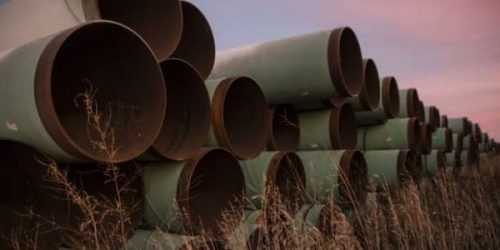Energy Transfer, the company behind the controversial Dakota Access oil pipeline, has declared force majeure on the project to stop companies from pulling out of its plan to double the pipeline’s capacity.
Reuters reported, citing unnamed sources in the know, that Energy Transfer is using force majeure to prevent companies that think the pipeline is no longer necessary to stick to their capacity commitments. The reason they think the pipeline is no longer necessary is that U.S. oil production has fallen substantially, removing the need for additional pipeline capacity.
The Dakota Access was conceived as a channel to transport shale oil from the Bakken play in North Dakota to Illinois. The $3.8-billion project, whose initial capacity was 570,000 bpd, attracted a lot of opposition, which escalated to massive protests a few years ago.
Now, Energy Transfer wants to boost the pipeline’s capacity to a much as 1.1 million bpd, but companies that are using the pipeline argue that this capacity would not be filled as it would take a long time for production in the Bakken to recover.
The shale play in North Dakota was walloped by the coronavirus crisis, forcing producers to idle as much as a quarter of their wells by mid-April. The collective output of the wells idled since the start of March, which numbered 4,600, was some 260,000 bpd. This is a large portion of the state’s total oil output, which averaged some 1.45 million bpd in February, according to data from the state’s Department of Mineral Resources.
“Honestly, DAPL is not needed,” one of the Reuters sources said. “They’re trying to build a house that all these people signed up for. Even if there’s no longer a need for the house, you can’t really walk away from it. Would I like to get out? Yes, for sure.”






